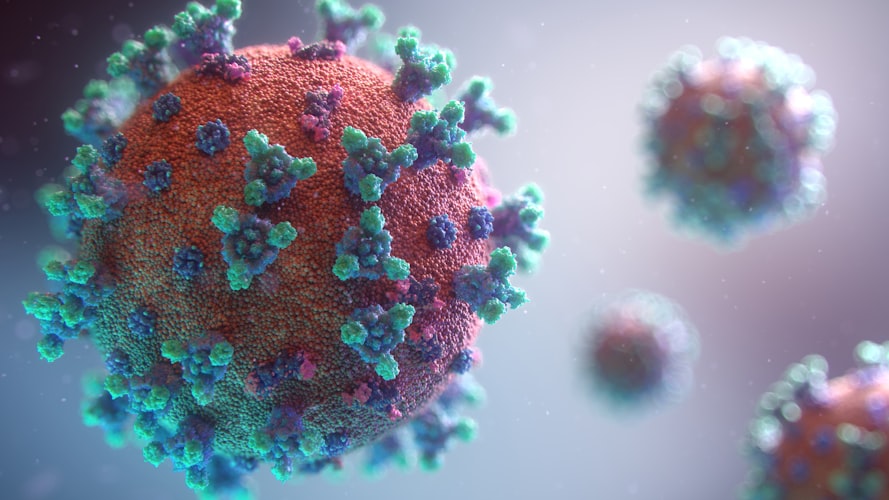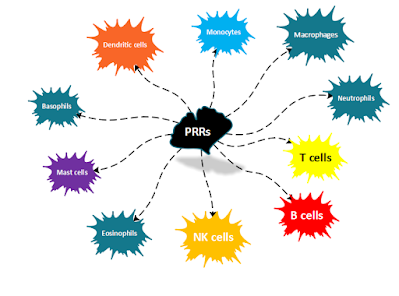STEM CELL THERAPY FOR CORONA PATIENTS (by Anant Kumar, Replico)
COVID-19 is an infectious viral disease caused by severe acute respiratory syndrome coronavirus 2, or SARS-CoV-2. The number of severe cases has increased dramatically throughout the world. India has also reported 3.01 crore cases, 2.91 crore recoveries, and 3.93 lakh deaths so far. [1] According to WHO, most infected people, experience mild to moderate respiratory illness and recover without requiring any special treatment.
Among various treatment options, mesenchymal stem cell-based therapies are also being investigated due to their regeneration ability and multilineage differentiation capacity along with other features like immunomodulation, antifibrosis, and anti-inflammatory effects. [2]
According to nature.com, mesenchymal stem cells are a population of multipotential stem/progenitor cells, which can differentiate into important lineages under-defined conditions.[3]MSCs, are a type of adult stem cells, which can be isolated from adult tissues like bone marrow, adipose tissue, dental pulp, and peripheral blood and can be used for treatment purposes. According to(Harrell et al.), mesenchymal stem cells has the ability to alter innate and adaptive immune responses as it can regulate the proliferation, activation, and effector function of immune cells.[4]
According to Shan Liu and colleagues, the pathologic features of critical COVID-19 cases are, consistent with acute lung injure (ALI)/acute respiratory distress syndrome (ARDS). MSCs are an effective treatment against these ARDS, so they can probably also be used to treat severe COVID-19 patients.[5]Food and Drug Administration, USA has also granted Emergency Use Authorization of stem cells for COVID-19 patients and a number of clinical trials are also going on.
There are three groups of COVID-19 patients, who are potential candidates for stem cell therapy, includes: [6]
- Critically ill older patients,
- Critically ill younger patients and
- Patients who are at high risk of infection due to underlying health-related conditions.
Research conducted in Beijing YouAn Hospital, China, with 7 patients with different degrees of severity, MSC transplantation, improved their pulmonary function. After treatment, the peripheral lymphocytes were increased, the C-reactive protein decreased, and the overactivated cytokine-secreting immune cells CXCR3+CD4+ T cells, CXCR3+CD8+ T cells, and CXCR3+ NK cells disappeared in 3-6 days. Among all, two normal and one severe patient were recovered and discharges within 10 days of treatment.[7] In severe cases, COVID-19 infection may lead to immune dysfunction due to “cytokine storm”, include a high concentration of IL-6, IL2, granulocyte colony-stimulating factor, and tumour necrosis factor. Recent studies suggest that the “cytokine storm” may contribute to the mortality of COVID-19.[8]MSCs balance and stops this overactivation of the immune system. In Ongoing trials, scientists are using MSCs derived from various tissues such as CT-MSCs, bone-marrow-derived MSCs, dental pulp-derived MSCs, umbilical cord-derived MSCs, etc and most of these trials have used MSCs from allogenic sources in order to provide the cells at the time of care. Some of the ongoing trials include :
Recent data indicate that MSCs are promising alternatives for the treatment of severe or chronic COVID-19 patients. Some research also suggests that it can also be used with other treatment methods. Certain issues needed to be resolved including the unavailability of data regarding the time of the start of MSC therapy for maximum benefits; therefore, studies are required to evaluate the optimal period of the start of cell-based therapies. Stem cell treatment has not yet been studied in a detailed manner in a wide range of patients, which also needed to be done to get strong evidence of all the parameters involving in the treatment.
by Anant Kumar
https://replicoo.blogspot.com/2021/06/history-and-application-of-microbiology.html
https://replicoo.blogspot.com/2021/07/toll-like-receptors.html
https://replicoo.blogspot.com/2021/07/immunotherapy-for-cancer.html
References
[1]https://www.mygov.in/covid-19/
[2]http://dx.doi.org/10.14336/AD.2020.0608
[3]https://www.nature.com/articles/s41536-019-0083-6
[4]Harrell, C. R., Sadikot, R., Pascual, J., Fellabaum, C., Jankovic, M. G., Jovicic, N., Djonov, V., Arsenijevic, N., & Volarevic, V. (2019). Mesenchymal Stem Cell-Based Therapy of Inflammatory Lung Diseases: Current Understanding and Future Perspectives. Stem cells international, 2019, 4236973. https://doi.org/10.1155/2019/4236973
[5]Liu, S., Peng, D., Qiu, H., Yang, K., Fu, Z., & Zou, L. (2020). Mesenchymal stem cells as a potential therapy for COVID-19. Stem cell research & therapy, 11(1), 169. https://doi.org/10.1186/s13287-020-01678-8
[6]Choudhery, M. S., & Harris, D. T. (2020). Stem cell therapy for COVID-19: Possibilities and challenges. Cell biology international, 44(11), 2182–2191. https://doi.org/10.1002/cbin.11440
[7]Leng, Z., Zhu, R., Hou, W., Feng, Y., Yang, Y., Han, Q., Shan, G., Meng, F., Du, D., Wang, S., Fan, J., Wang, W., Deng, L., Shi, H., Li, H., Hu, Z., Zhang, F., Gao, J., Liu, H., Li, X., … Zhao, R. C. (2020). Transplantation of ACE2- Mesenchymal Stem Cells Improves the Outcome of Patients with COVID-19 Pneumonia. Aging and disease, 11(2), 216–228. https://doi.org/10.14336/AD.2020.0228
[8]Tang, Y., Liu, J., Zhang, D., Xu, Z., Ji, J., & Wen, C. (2020). Cytokine Storm in COVID-19: The Current Evidence and Treatment Strategies. Frontiers in immunology, 11, 1708. https://doi.org/10.3389/fimmu.2020.01708



Well written bro
ReplyDeleteThank you
Delete